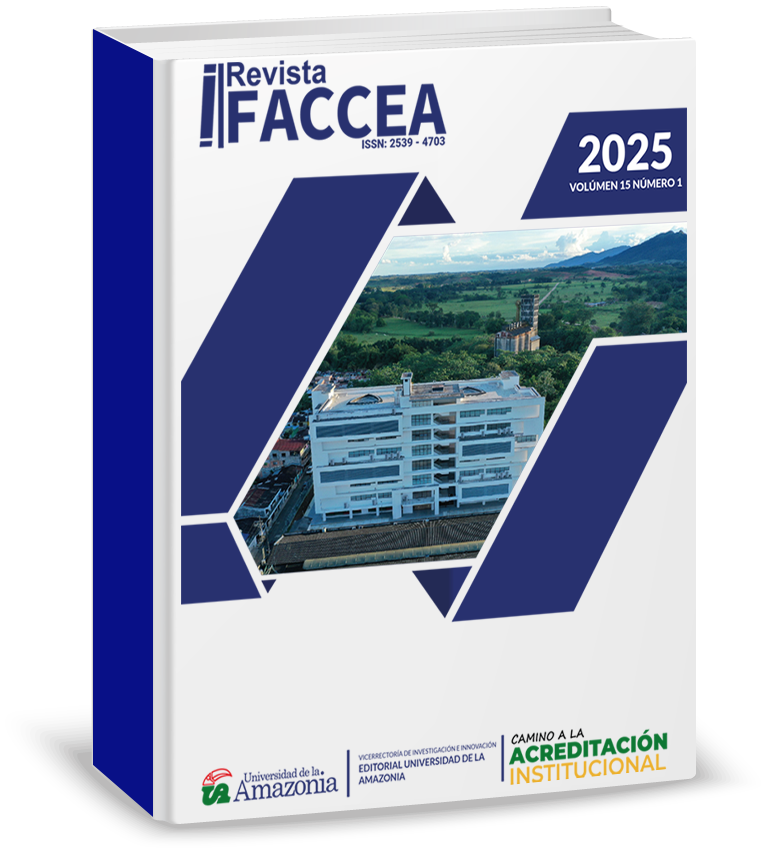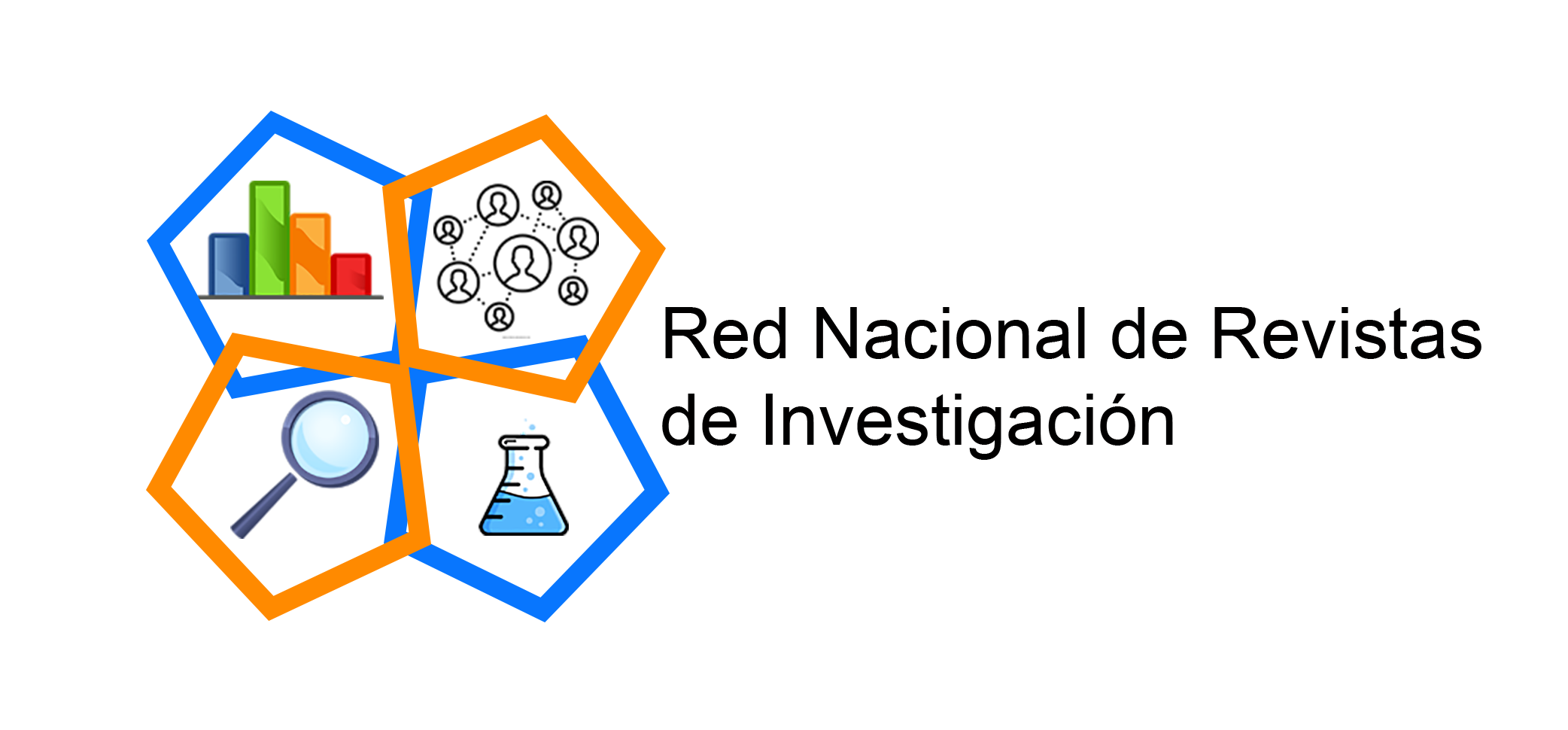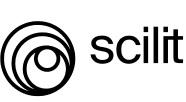EVOLUCIÓN DE LA RELACIÓN ENTRE PSICOLOGÍA Y ECONOMÍA EN LA ÚLTIMA DÉCADA: UN ANÁLISIS TENDENCIAL Y BIBLIOMÉTRICO
DOI:
https://doi.org/10.47847/faccea.v15n1a6Palabras clave:
Economía Conductual, Psicología Económica, Análisis Bibliométrico, Scopus, VosviewerResumen
Este artículo explora la evolución de la relación entre la psicología y la economía durante el período 2014-2024, emplea un análisis bibliométrico de la base de datos Scopus. Centrándose en cómo las interacciones y los fenómenos psicológicos afectan las decisiones económicas, el estudio utiliza el software VOSviewer para visualizar las tendencias y las redes de colaboración en el campo de la economía conductual. Se revela un creciente interés en cómo los factores emocionales, los sesgos cognitivos y las influencias sociales influyen en las decisiones económicas. Este análisis no solo muestra la integración de conocimientos psicológicos en la teoría económica, sino que también subraya el impacto de estas investigaciones en el desarrollo de políticas públicas más eficaces. Al identificar las principales áreas de investigación y colaboración, se proporciona una visión comprensiva de la dinámica entre estas dos disciplinas, destaca la importancia de una aproximación interdisciplinaria para entender y mejorar la toma de decisiones económicas en un entorno global.
Descargas
Referencias
Addessi, E., Beran, M., Bourgeois-Gironde, S., Brosnan, S., & Leca, J. (2019). Are the roots of human economic systems shared with non-human primates?. Neuroscience & Biobehavioral Reviews, 109, 1-15. https://doi.org/10.1016/j.neubiorev.2019.12.026
Ahmad, F., & Oriani, R. (2022). Is the investor's reliance on cognition and emotional regulation predict preference for selecting value versus growth stocks?. The European Journal of Finance, 29, 1555 - 1578. https://doi.org/10.1080/1351847X.2022.2086478
Akhtar, F., & Das, N. (2020). Investor personality and investment performance: from the perspective of psychological traits. Qualitative Research in Financial Markets, 12, 333-352. https://doi.org/10.1108/qrfm-11-2018-0116
Aksenov, L., Fairchild, R., Kaplan, S., Scales, C., & Routh, J. (2022). Behavioral Economics in Urology: A Scoping Review. The Journal of Urology, 207, 1193 - 1199. https://doi.org/10.1097/JU.0000000000002673
Anglada-Tort, M., Masters, N., Steffens, J., North, A., & Müllensiefen, D. (2022). The Behavioural Economics of Music: Systematic review and future directions. Quarterly Journal of Experimental Psychology (2006), 76, 1177 - 1194. https://doi.org/10.1177/17470218221113761
Anguera-Torrell, O. (2020). Entrepreneurship, trust and corruption. European Journal of Political Economy, 65, 101937. https://doi.org/10.1016/j.ejpoleco.2020.101937
Aoujil, Z., Hanine, M., Flores, E., Samad, M., & Ashraf, I. (2023). Artificial Intelligence and Behavioral Economics: A Bibliographic Analysis of Research Field. IEEE Access, 11, 139367-139394. https://doi.org/10.1109/ACCESS.2023.3339778
Arnaud, Y., Silva, R., & Drouin, O. (2021). L’économie comportementale au service de la santé. Canadian Journal of Public Health = Revue Canadienne de Santé Publique, 112, 417 - 420. https://doi.org/10.17269/s41997-021-00503-w
Arnott, D., & Gao, S. (2019). Behavioral economics for decision support systems researchers. Decis. Support Syst., 122. https://doi.org/10.1016/J.DSS.2019.05.003
Aulawi, H. (2021). The Impact of Knowledge Sharing Towards Higher Education Performance in Research Productivity. Int. J. Sociotechnology Knowl. Dev., 13, 121-132. https://doi.org/10.4018/IJSKD.2021010109
Baranov, V., Haushofer, J., & Jang, C. (2020). Can Positive Psychology Improve Psychological Well-Being and Economic Decision-Making? Experimental Evidence from Kenya. Economic Development and Cultural Change, 68, 1345 - 1376. https://doi.org/10.1086/702860
Bartholomeyczik, K., Gusenbauer, M., & Treffers, T. (2022). The influence of incidental emotions on decision-making under risk and uncertainty: a systematic review and meta-analysis of experimental evidence. Cognition and Emotion, 36, 1054 - 1073. https://doi.org/10.1080/02699931.2022.2099349
Bretas, V., & Alon, I. (2021). Franchising research on emerging markets: Bibliometric and content analyses. Journal of Business Research, 133, 51-65. https://doi.org/10.1016/J.JBUSRES.2021.04.067
Bullock, H. (2019). Psychology's contributions to understanding and alleviating poverty and economic inequality: Introduction to the special section.. The American psychologist, 74 6, 635-640 . https://doi.org/10.1037/amp0000532
Cardeño-Portela, N., Cardeño-Portela, E. J., & Bonilla-Blanchar, E. (2023). Las TIC y la transformación académica en las universidades. Región Científica, 2(2), 202370. https://doi.org/10.58763/rc202370
Chege, S., & Wang, D. (2020). The influence of technology innovation on SME performance through environmental sustainability practices in Kenya. Technology in Society, 60, 101210. https://doi.org/10.1016/j.techsoc.2019.101210
Dalton, A., Wolff, K., & Bekker, B. (2021). Multidisciplinary Research as a Complex System. International Journal of Qualitative Methods, 20. https://doi.org/10.1177/16094069211038400
Debortoli, D. O., & Brignole, N. B. (2024). Inteligencia empresarial para estimular el giro comercial en el microcentro de una ciudad de tamaño intermedio. Región Científica, 3(1), 2024195. https://doi.org/10.58763/rc2024195
Domanski, D., Howaldt, J., & Kaletka, C. (2020). A comprehensive concept of social innovation and its implications for the local context – on the growing importance of social innovation ecosystems and infrastructures. European Planning Studies, 28, 454 - 474. https://doi.org/10.1080/09654313.2019.1639397
Dowling, K., Guhl, D., Klapper, D., Spann, M., Stich, L., & Yegoryan, N. (2019). Behavioral biases in marketing. Journal of the Academy of Marketing Science, 48, 449-477. https://doi.org/10.2139/ssrn.3091557
Dua, J., Singh, V., & Lathabai, H. (2022). Measuring and characterizing international collaboration patterns in Indian scientific research. Scientometrics, 128, 5081 - 5116. https://doi.org/10.1007/s11192-023-04794-3
Eslava-Zapata, R., Gómez-Cano, C., Chacón-Guerrero, E., & Esteban-Montilla, R. (2023). Análisis Bibliométrico sobre estilos de liderazgo: contribuciones y tendencia de la investigación. Educación y Sociedad, 15(6), 574-587. https://rus.ucf.edu.cu/index.php/rus/article/view/4175
Eslava-Zapata, R., Mogollón Calderón, O. Z., & Chacón Guerrero, E. (2023). Socialización organizacional en las universidades: estudio empírico. Región Científica, 2(2), 202369. https://doi.org/10.58763/rc202369
Feldman, I., Gebreslassie, M., Sampaio, F., Nystrand, C., & Ssegonja, R. (2020). Economic evaluations of public health interventions for mental health: A systematic literature review. European Journal of Public Health, 30. https://doi.org/10.1093/eurpub/ckaa165.057
Gómez Miranda, O. M. (2022). La franquicia: de la inversión al emprendimiento. Región Científica, 1(1), 20229. https://doi.org/10.58763/rc20229
Gómez-Cano, C., Sánchez-Castillo, V., & Clavijo-Gallego, T. A. (2023). Redes de conocimiento y colaboración internacional en torno al Generative Pre-trained Transformer (GPT): Un estudio bibliométrico. Metaverse Basic and Applied Research, 2, 33. https://doi.org/10.56294/mr202333
Higuera Carrillo, E. L. (2022). Aspectos clave en agroproyectos con enfoque comercial: Una aproximación desde las concepciones epistemológicas sobre el problema rural agrario en Colombia. Región Científica, 1(1), 20224. https://doi.org/10.58763/rc20224
Horton, A. (2019). Causal Economics: A new pluralist framework for behavioral economics that advances theoretical and applied foundations. Heliyon, 5. https://doi.org/10.1016/j.heliyon.2019.e01342
Hoyos Chavarro, Y. A., Melo Zamudio, J. C., & Sánchez Castillo, V. (2022). Sistematización de la experiencia de circuito corto de comercialización estudio de caso Tibasosa, Boyacá. Región Científica, 1(1), 20228. https://doi.org/10.58763/rc20228
Hua, S., & Liu, F. (2021). A New Hybrid Teaching Model for a Psychology Course. Int. J. Emerg. Technol. Learn., 16. https://doi.org/10.3991/IJET.V16I03.20457
Ivașcu, L., Pavel, C., Sarfraz, M., Arulanandam, B., & Tan, H. (2022). An Exploratory Study on Corporate Governance From Neuro-Governance Lenses in the Malaysian Context. Frontiers in Psychology, 13. https://doi.org/10.3389/fpsyg.2022.911907
Konietzko, J., Bocken, N., & Hultink, E. (2020). Circular ecosystem innovation: An initial set of principles. Journal of Cleaner Production, 253, 119942. https://doi.org/10.1016/j.jclepro.2019.119942
Lecouteux, G. (2023). The Homer economicus narrative: from cognitive psychology to individual public policies. Journal of Economic Methodology, 30, 176 - 187. https://doi.org/10.1080/1350178X.2023.2192222
Ledesma, F., & Malave-González, B. E. (2022). Patrones de comunicación científica sobre E-commerce: un estudio bibliométrico en la base de datos Scopus. Región Científica, 1(1), 202214. https://doi.org/10.58763/rc202214
Linares Giraldo, M., Rozo Carvajal, K. J., & Sáenz López, J. T. (2023). Impacto de la pandemia en el comportamiento del comercio B2C en Colombia. Región Científica, 2(1), 202320. https://doi.org/10.58763/rc202320
Lipman, S., & Attema, A. (2019). Rabin's paradox for health outcomes. Health Economics, 28, 1064 - 1071. https://doi.org/10.1002/hec.3918
Lomas, T., Waters, L., Williams, P., Oades, L., & Kern, M. (2020). Third wave positive psychology: broadening towards complexity. The Journal of Positive Psychology, 16, 660 - 674. https://doi.org/10.1080/17439760.2020.1805501
Maialeh, R. (2019). Generalization of results and neoclassical rationality: unresolved controversies of behavioural economics methodology. Quality & Quantity, 53, 1743-1761. https://doi.org/10.1007/S11135-019-00837-1
McNeish, D., & Kelley, K. (2019). Fixed effects models versus mixed effects models for clustered data: Reviewing the approaches, disentangling the differences, and making recommendations.. Psychological methods, 24 1, 20-35 . https://doi.org/10.1037/met0000182
Miles, J., & Fassinger, R. (2021). Creating a public psychology through a scientist-practitioner-advocate training model.. The American psychologist, 76 8, 1232-1247 . https://doi.org/10.1037/amp0000855
Mogrovejo Andrade, J. M. (2022). Estrategias resilientes y mecanismos de las organizaciones para mitigar los efectos ocasionados por la pandemia a nivel internacional. Región Científica, 1(1), 202211. https://doi.org/10.58763/rc202211
Mondejar, M., Avtar, R., Diaz, H., Dubey, R., Esteban, J., Gómez-Morales, A., Hallam, B., Mbungu, N., Okolo, C., Prasad, K., She, Q., & Garcia-Segura, S. (2021). Digitalization to achieve sustainable development goals: Steps towards a Smart Green Planet.. The Science of the total environment, 794, 148539 . https://doi.org/10.1016/j.scitotenv.2021.148539
Naseem, S., Mohsin, M., Hui, W., Liyan, G., & Penglai, K. (2021). The Investor Psychology and Stock Market Behavior During the Initial Era of COVID-19: A Study of China, Japan, and the United States. Frontiers in Psychology, 12. https://doi.org/10.3389/fpsyg.2021.626934
Nayyar, D., & Malhotra, R. (2023). Economic and Social Policies for Human Development. Journal of Human Development and Capabilities, 24, 439 - 467. https://doi.org/10.1080/19452829.2023.2252645
Paule-Vianez, J., Gómez-Martínez, R., & Prado‐Román, C. (2020). A bibliometric analysis of behavioural finance with mapping analysis tools. European Research on Management and Business Economics, 26, 71-77. https://doi.org/10.1016/j.iedeen.2020.01.001
Pérez Gamboa, A. J., García Acevedo, Y., & García Batán, J. (2019). Proyecto de vida y proceso formativo universitario: un estudio exploratorio en la Universidad de Camagüey. Trasnsformación, 15(3), 280-296. http://scielo.sld.cu/scielo.php?script=sci_arttext&pid=S2077-29552019000300280
Pérez Valdivia, Y. O., Rojas Sánchez, G. A., Sánchez Castillo, V., & Pérez Gamboa, A. J. (2024). La categoría bienestar psicológico y su importancia en la práctica asistencial: una revisión semisistemática. Revista Información Científica, 103. http://dx.doi.org/10.5281/zenodo.10615337
Pérez-Guedes, N., & Arufe-Padrón, A. (2023). Perspectivas de transición energética en América Latina en el escenario pospandémico. Región Científica, 2(1), 202334. https://doi.org/10.58763/rc202334
Phillips, P., & Pohl, G. (2020). Tinker, Thaler, Soldier, Spy: Behavioral Economics of HUMINT Transactions and Source Prioritizations. International Journal of Intelligence and CounterIntelligence, 34, 17 - 44. https://doi.org/10.1080/08850607.2020.1747830
Pouso, S., Borja, Á., & Uyarra, M. (2020). An Interdisciplinary Approach for Valuing Changes After Ecological Restoration in Marine Cultural Ecosystem Services. , 7. https://doi.org/10.3389/fmars.2020.00715
Raut, R. (2020). Past behaviour, financial literacy and investment decision-making process of individual investors. International Journal of Emerging Markets, 15, 1243-1263. https://doi.org/10.1108/ijoem-07-2018-0379
Rodríguez-Torres, E., Gómez-Cano, C., & Sánchez-Castillo, V. (2022). Management information systems and their impact on business decision making. Data & Metadata, 1, 21. https://doi.org/10.56294/dm202221
Roman-Acosta, D., Caira-Tovar, N., Rodríguez-Torres, E., & Pérez Gamboa, A. J. (2023). Effective leadership and communication strategies in disadvantaged contexts in the digital age. Salud, Ciencia Y Tecnología-Serie De Conferencias, 2, 532-532. https://doi.org/10.56294/sctconf2023532
Ross, D. (2022). Economics is converging with sociology but not with psychology. Journal of Economic Methodology, 30, 135 - 156. https://doi.org/10.1080/1350178X.2022.2049854
Sachs, J., Schmidt-Traub, G., Mazzucato, M., Messner, D., Nakicenovic, N., & Rockström, J. (2019). Six Transformations to achieve the Sustainable Development Goals. Nature Sustainability, 1-10. https://doi.org/10.1038/s41893-019-0352-9
Sánchez Catillo, V., Pérez Gamboa, A. J., & Gómez-Cano, C. (2024). Trends and evolution of Scientometric and Bibliometric research in the SCOPUS database. Bibliotecas. Anales de investigación, 20(1). https://revistas.bnjm.sld.cu/index.php/BAl/article/view/834
Sánchez-Castillo, V., Gómez-Cano, C. A., & Pérez-Gamboa, A. J. (2024). La Economía Azul en el contexto de los objetivos del desarrollo sostenible: una revisión mixta e integrada de la literatura en la base de datos Scopus. AiBi Revista de Investigación, Administración e Ingeniería, 12(2), 206-221. https://orcid.org/0000-0002-3669-3123
Schill, C., Anderies, J., Lindahl, T., Folke, C., Polasky, S., Cárdenas, J., Crépin, A., Janssen, M., Norberg, J., & Schlüter, M. (2019). A more dynamic understanding of human behaviour for the Anthropocene. Nature Sustainability, 1-8. https://doi.org/10.1038/s41893-019-0419-7
Schröder, D., & Freedman, G. (2019). Decision making under uncertainty: the relation between economic preferences and psychological personality traits. Theory and Decision, 89, 61 - 83. https://doi.org/10.1007/s11238-019-09742-3
Sima, V., Gheorghe, I., Subić, J., & Nancu, D. (2020). Influences of the Industry 4.0 Revolution on the Human Capital Development and Consumer Behavior: A Systematic Review. Sustainability, 12, 4035. https://doi.org/10.3390/su12104035
Singh, R., Akram, S., Gehlot, A., Buddhi, D., Priyadarshi, N., & Twala, B. (2022). Energy System 4.0: Digitalization of the Energy Sector with Inclination towards Sustainability. Sensors (Basel, Switzerland), 22. https://doi.org/10.3390/s22176619
Speer, S., Smidts, A., & Boksem, M. (2020). Cognitive control increases honesty in cheaters but cheating in those who are honest. Proceedings of the National Academy of Sciences of the United States of America, 117, 19080 - 19091. https://doi.org/10.1073/pnas.2003480117
Sueyoshi, T., & Wang, D. (2020). Rank dynamics and club convergence of sustainable development for countries around the world. Journal of Cleaner Production, 250, 119480. https://doi.org/10.1016/j.jclepro.2019.119480
Sussman, A., Hershfield, H., & Netzer, O. (2023). Consumer Financial Decision Making: Where We’ve Been and Where We’re Going. Journal of the Association for Consumer Research, 8, 365 - 372. https://doi.org/10.1086/727194
Truc, A. (2021). Interdisciplinary influences in behavioral economics: a bibliometric analysis of cross-disciplinary citations. Journal of Economic Methodology, 29, 217 - 251. https://doi.org/10.1080/1350178X.2021.2011374
Valaskova, K., Bartosova, V., & Kubala, P. (2019). Behavioural Aspects of the Financial Decision-Making. Organizacija, 52, 22 - 31. https://doi.org/10.2478/ORGA-2019-0003
Vlaev, I., King, D., Darzi, A., & Dolan, P. (2019). Changing health behaviors using financial incentives: a review from behavioral economics. BMC Public Health, 19. https://doi.org/10.1186/s12889-019-7407-8
Voulvoulis, N., & Burgman, M. (2019). The contrasting roles of science and technology in environmental challenges. Critical Reviews in Environmental Science and Technology, 49, 1079 - 1106. https://doi.org/10.1080/10643389.2019.1565519
Wang, T., Li, H., Zhou, X., Huang, B., & Zhu, H. (2020). A prospect theory-based three-way decision model. Knowl. Based Syst., 203, 106129. https://doi.org/10.1016/j.knosys.2020.106129
Wang, Y., Wang, L., Wu, G., Yang, J., An, W., Yu, J., & Guo, Y. (2022). Disentangling Light Fields for Super-Resolution and Disparity Estimation. IEEE Transactions on Pattern Analysis and Machine Intelligence, PP, 1-1. https://doi.org/10.1109/TPAMI.2022.3152488
Whitman, G. (2021). Austrian behavioral economics. Journal of Institutional Economics, 1-18. https://doi.org/10.1017/S1744137421000084
Williamson, B. (2019). Psychodata: disassembling the psychological, economic, and statistical infrastructure of ‘social-emotional learning’. Journal of Education Policy, 36, 129 - 154. https://doi.org/10.1080/02680939.2019.1672895
Winter, C. (2020). The Value of Behavioral Economics for EU Judicial Decision-Making. German Law Journal, 21, 240 - 264. https://doi.org/10.1017/glj.2020.3
Xiao, D., & Su, J. (2022). Role of Technological Innovation in Achieving Social and Environmental Sustainability: Mediating Roles of Organizational Innovation and Digital Entrepreneurship. Frontiers in Public Health, 10. https://doi.org/10.3389/fpubh.2022.850172
Descargas
Publicado
Número
Sección
Licencia
Derechos de autor 2025 Revista Facultad de Ciencias Contables Económicas y Administrativas -FACCEA

Esta obra está bajo una licencia internacional Creative Commons Atribución-NoComercial-CompartirIgual 4.0.



















